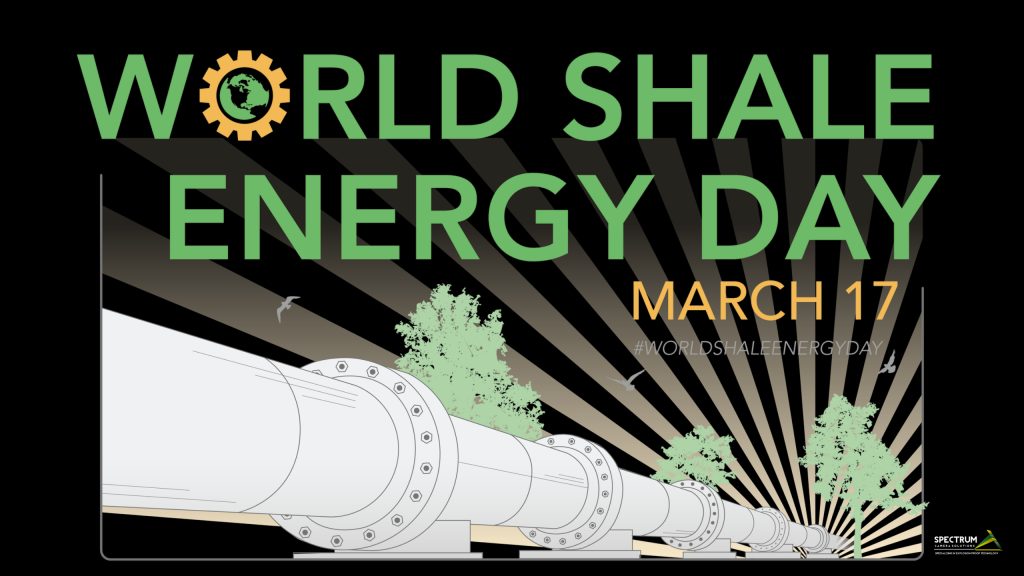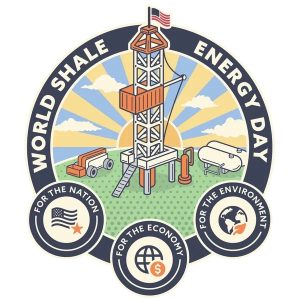🌍✨ Excited to celebrate World Shale Energy Day on March 17th! Let’s recognize the significant contributions of shale energy in driving innovation and sustainability in the energy sector. Together, we can continue to explore new possibilities and shape a cleaner, brighter future.
The shale revolution, characterized by the extraction of oil and natural gas from shale formations through hydraulic fracturing and horizontal drilling, has profoundly reshaped the downstream market. Its impact extends across various sectors, notably in refining and petrochemical industries.
One of the most significant effects of the shale revolution on the downstream market is the availability of cheaper feedstocks. Traditionally, the downstream sector relied heavily on crude oil as the primary feedstock for refining processes. However, the emergence of shale gas and tight oil has diversified the feedstock options. Shale-derived natural gas liquids (NGLs) such as ethane, propane, and butane have become increasingly accessible and affordable. These lighter hydrocarbons are crucial feedstocks for petrochemical production, particularly in the manufacture of plastics and chemicals.
The abundance of shale gas has led to a notable shift in feedstock preferences among petrochemical producers. Ethane, in particular, has gained prominence as a preferred feedstock for ethylene production. Ethylene is a fundamental building block for various plastics, and its production from ethane offers significant cost advantages compared to naphtha-based processes. As a result, many petrochemical plants have shifted towards ethane cracking, capitalizing on the cheaper feedstock to enhance competitiveness and profitability.
Explosion Proof Cameras Certified for Ethane and Ethylene Service
Amidst this boom in ethane cracking furnace construction, it’s worth noting the critical role played by specialized equipment in ensuring the safety and efficiency of these processes. Companies like Spectrum Camera Solutions manufacture explosion-proof cameras certified for ethane service and have been supporting major expansions from this. These cameras are integral for process controls and process safety, contributing to the overall reliability and security of ethane cracking operations.
Furthermore, the shale revolution has not only influenced feedstock choices but has also spurred investment in downstream infrastructure. The surge in shale production necessitated the expansion and reconfiguration of refining and petrochemical facilities to accommodate the changing feedstock landscape. New pipelines, processing units, and storage facilities have been constructed to transport and process shale-derived feedstocks efficiently.
The downstream market’s response to the shale revolution has also been characterized by a wave of capacity expansions and new investments. Petrochemical companies, recognizing the cost advantages offered by shale-derived feedstocks, have embarked on ambitious expansion projects to capitalize on this newfound resource abundance. These investments aim to increase production capacities for key petrochemicals, meet growing demand, and maintain competitiveness in global markets.
Moreover, the shale revolution has bolstered the downstream market’s resilience and flexibility. The availability of diverse feedstock options allows refineries and petrochemical plants to adjust their production processes based on market dynamics and price differentials. This flexibility enables operators to optimize their operations, maximize margins, and navigate changing market conditions effectively.
Additionally, the shale revolution has had ripple effects across related industries, contributing to the revitalization of manufacturing sectors reliant on petrochemical products. Lower feedstock costs translate into cost savings for downstream industries, enhancing their competitiveness in domestic and international markets. Industries such as plastics manufacturing, automotive, construction, and consumer goods benefit from cheaper raw materials, driving growth and innovation within their respective sectors.
In conclusion, the shale revolution has fundamentally transformed the downstream market, reshaping feedstock preferences, driving investment in infrastructure and capacity expansions, and enhancing the industry’s resilience and competitiveness. Cheaper shale-derived feedstocks, particularly ethane, have emerged as key drivers of growth and profitability for the refining and petrochemical sectors. Looking ahead, continued advancements in shale extraction technologies and evolving market dynamics are likely to further influence the downstream market, shaping its trajectory for years to come.
About Spectrum Camera Solutions:
Spectrum Camera Solutions manufactures a full range of globally certified Explosion Proof cameras to monitor any hazardous area. Founded in 2012, Spectrum Camera Solutions has an unparalleled background as a world leader in hazardous-area vision systems featuring explosion-protected cameras. Our systems help monitor process areas, security, and safety, and our innovative Explosion Proof camera housings are made from durable materials and innovative engineering to ensure operational excellence in harsh environments. Our cameras are Made In Texas and we keep models in stock that are ready to ship.
Current manufacturers offered:
- Spectrum – Axis Explosion-Proof Camera
- Spectrum – Bosch Explosion-Proof Camera
- Spectrum – Avigilon Explosion-Proof Camera
- Spectrum – Motorola Explosion-Proof Camera
- Spectrum – Panasonic Explosion-Proof Camera
- Spectrum – Pelco Explosion-Proof Camera





